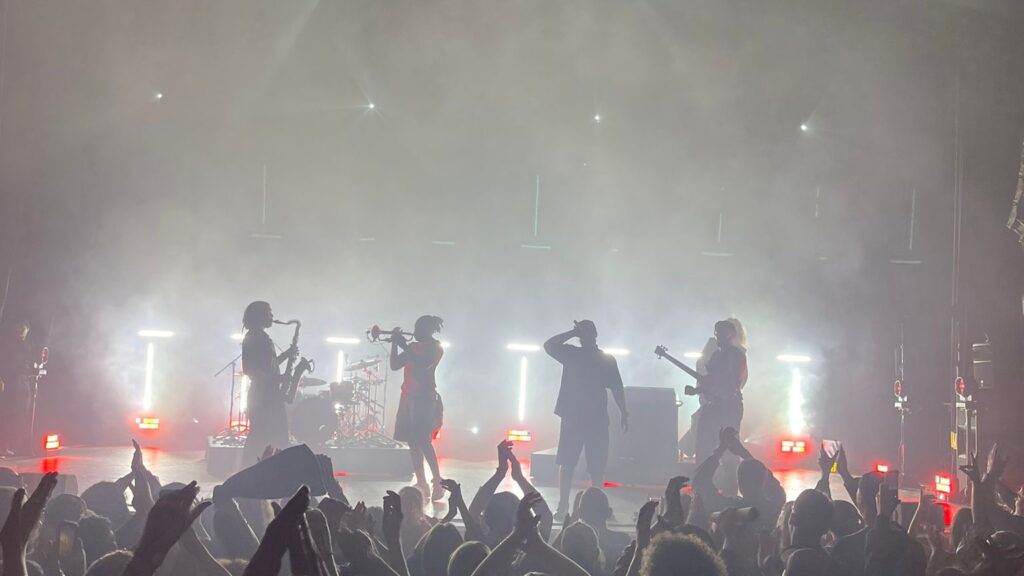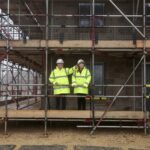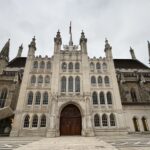The popularity of jazz continues to rise in the UK, with London musicians paving a new road in the genre. The EFG Jazz Festival is back tomorrow – and it’s bigger than ever before.
Over the last decade, attendance of the festival has doubled by 50%, with 300 events spread across venues ranging from intimate jazz clubs like Ronnie Scott’s and The Vortex to the Royal Festival Hall.
Audrey Powne is an Australian trumpeter who has flown to the UK to perform at The Albany, in Deptford, as part of the EFG Jazz Festival.
She told City News about why she thinks jazz now feels more accessible to younger audiences.
Powne says that the “traditional structures” of jazz and jazz education have remained unchanged for many years, often not “inclusive” of women or “diverse”.
But now there are now musicians creating their “own communities”, naming Ezra Collective as an “obvious” example.
“People are creating their own environment and their own spaces, which takes jazz out of this stereotypical jazz environment of everyone sitting down quietly drinking wine in a beret being judgemental and pretentious”
– Audrey Powne
Ezra Collective has been a pivotal force in London’s jazz renaissance. They lead the charge with a boundary-pushing approach that fuses genres like Afrobeat and R&B with contemporary jazz improvisation.
The five-piece group were the first jazz act to clinch the Mercury Prize with their explosive album Where I’m Meant To Be in 2020.
They have since released their highly acclaimed groove album Dance, No One’s Watching.
The group will headline Wembley’s OVO Arena tomorrow, becoming the only contemporary jazz group to reach this milestone.
According to RAJAR, Jazz FM listeners increased by 16.2% in June and the station has close to half a million listeners each week.
Nick Lewis is the Head of Music at Camden’s KOKO and was also one of the programmers at Ronnie Scott’s for many years. He also hosts a jazz show on Soho Radio.
He told City News that Giles Peterson’s We Out Here Festival is one of the key movements driving this change, saying a lot of it is “music to dance to”.
One of London’s thriving jazz festivals is Cross The Tracks, held in Herne Hill’s Brockwell Park. In its first year, the festival sold around 10,000 tickets.
Since then, it’s seen significant growth, reaching a crowd of 30,000 attendees in 2022 and selling out for the last two years. Standing amongst other festivals like Love Supreme, South Facing and All Points East, all of whom are booking jazz bands as headliners.
“I was at All Points East in August watching Ezra Collective smash it to ten thousand 20-year-olds. It was inspiring, that wasn’t happening ten years ago”
– Nick Lewis
Lewis speaks of the new crop of emerging soul and R&B artists, describing the scene as “red hot”. He says this crossover of genres into jazz has attracted a new Gen Z and millennial audience.
“I can go down the road and hear Afrobeat, reggae or grime that’s truly authentic…and because of that melting pot, UK jazz has benefited”
– Moses Boyd, Drummer (Downbeat)
Although Jazz FM experienced a slight decline in listeners as September hit, it seems festivals are drawing younger listeners in for the summer season.
Justin McKenzie, the co-founder of label and live event jazz re:freshed, believes the momentum for the UK jazz scene has not “happened by chance”.
He says jazz aficionados have been “battling” against the “long-standing” and “established” attitudes of the jazz scene in this country, stating “we were doing it our way.”
Spotify reports that 40% of jazz listening on their platform is by people under 30, with Deezer and Amazon Music seeing similar increases.
Paul Pace, Music Bookings Manager at Ronnie Scott’s says jazz has attracted a new demographic of listeners over the last few years.
He believes lockdown was a big “turning point”, noticing there is now an influx of younger jazz fans, especially at the late late show, which takes place at midnight.
TICKETS NOW ON SALE! 💥
Secure your tickets and join us 15-24 November with international icons, homegrown talent, new commissions and more.
Book now at https://t.co/69SKBssItd#wearejazz@EFGInt @BBCRadio3 @PRSFoundation @Thienot_ @Jazzwise @jazzfm @ace__london pic.twitter.com/OmrAkFldRe
— EFG London Jazz Festival (@LondonJazzFest) April 26, 2024
Paul acknowledges that as a promoter you must not “follow” the general “trends” but “create some yourself”.
He said that legacies “remind” people of what came before them.
Some long-time jazz audiences at Ronnie’s have not kept up with the trends as much.
Paul explained that he is “not speaking for all of them” but that there are a few who point out “this isn’t jazz” or “I don’t know the names”.
He adds that they are often people who either “like what they know” or “listen with their eyes”.
“I think they need to be more adventurous, we certainly are as bookers, and we do try and challenge ourselves as well”
– Paul Pace
As jazz becomes more accessible and the London scene continues to thrive, it’s evident that venues are embracing a new fusion of jazz and is adapting to appeal to diverse audiences.
And Ezra Collective headlining a venue with a 12,500 capacity, is a reflection of this change.
As Powne points out, it’s “so rare” for instrumental music to “cut through” the mainstream, highlighting the growing impact of jazz in the wider music world.






